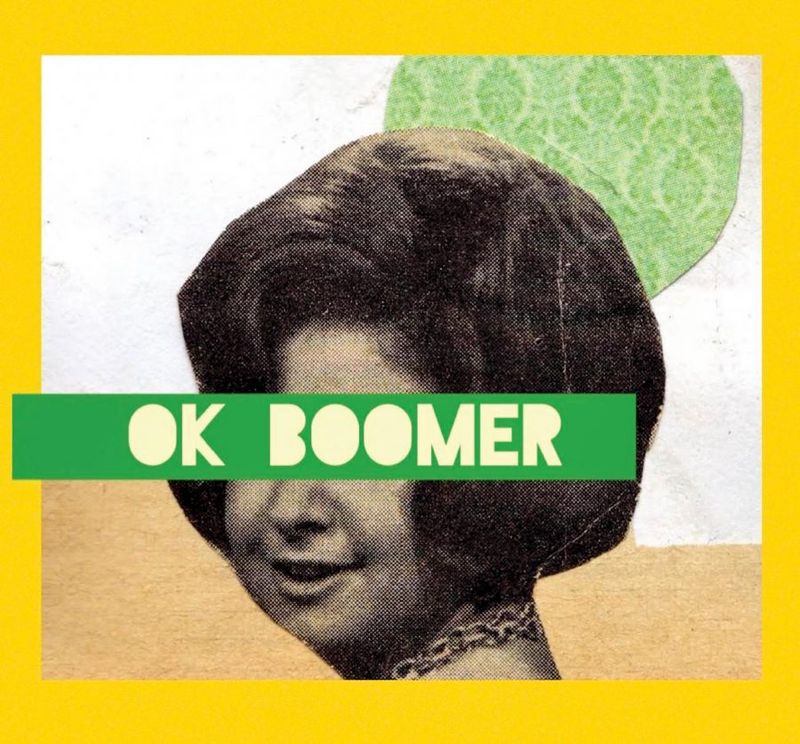Navigating the complex world of generational language, certain phrases that resonate with younger generations often strike a discordant note with Boomers. These differences highlight shifts in cultural attitudes, technological advancements, and socio-economic landscapes.
1. “OK, Boomer.”
“OK, Boomer.” What began as a viral retort has grown into a catchphrase encapsulating generational divides. To Boomers, it feels dismissive, reducing their perspectives to outdated opinions. Younger folks wield it as a comeback to out-of-touch remarks on issues like housing or technology. This phrase symbolizes a broader clash over modern challenges and values, pitting lived experiences against perceptions of privilege. While Boomers may view it as disrespectful, for younger generations, it’s a way to voice frustration over societal issues they inherit, often feeling unheard in critical dialogues.
2. “Nobody cares about your fax machine stories.”
Reliving tales of faxes and rotary phones, Boomers often share stories that evoke nostalgia. But for younger generations, these anecdotes highlight a tech world long obsolete. The phrase “Nobody cares about your fax machine stories” mocks this romanticism of bygone technology. Smartphones and digital communication have replaced the once-essential fax. While Boomers reminisce, younger folks see these tales as irrelevant to their tech-savvy lives—a generation raised on instantaneous messaging and seamless connectivity. This sentiment surfaces as a gentle ribbing, yet underscores the vast technological shift between eras.
3. “Retirement? Must be nice.”
For Boomers, retirement represents a well-earned respite, a time to enjoy life after decades of work. Yet, when younger generations quip, “Retirement? Must be nice,” it stirs resentment. This phrase illuminates stark contrasts in financial realities; Boomers enjoyed pensions and affordable housing, whereas younger people grapple with gig economies and crushing student debt. The comment underscores a sense of economic despair and inequality. While Boomers savor retirement dreams, millennials and Gen Z face a precarious future, questioning whether such security will ever be within their reach.
4. “Your ‘hard work’ was just luck.”
Success stories from the Boomer era often start with grit and end in achievement. Yet, the assertion “Your ‘hard work’ was just luck” stings, challenging the meritocratic narrative. Younger generations, facing stagnant wages and systemic barriers, see luck as a significant player in the success of past decades. This phrase suggests that Boomers had opportunities unavailable today. It questions the fairness of equating privilege with personal success and reflects frustration with a system perceived as rigged. The contrast lies in differing definitions of “hard work” across generations.
5. “Climate change is your fault.”
As climate change becomes more pressing, blame often shifts to those who shaped policy. “Climate change is your fault” is a stark accusation Boomers face, highlighting their role in neglecting environmental crises. Younger generations inherit a planet marred by extreme weather and pollution. This phrase embodies generational frustration, pointing fingers at perceived irresponsibility. For Boomers, it feels like an unfair simplification; for the young, it’s an urgent rallying cry. It underscores the need for accountability and climate action, as well as the urgency for collaborative solutions across age divides.
6. “Stop gatekeeping music/taste.”
The battle over musical taste is a timeless cultural clash. “Stop gatekeeping music/taste” calls out Boomers who idolize their music era as superior. Younger generations, reveling in genre-blending and streaming freedom, reject such snobbery. They appreciate guilty pleasures and diverse tunes beyond traditional boundaries. This phrase encourages inclusivity and exploration, challenging static definitions of “good” music. For Boomers, it’s a defense of cherished memories; for the youth, it’s about broadening horizons. The discourse highlights evolving cultural landscapes and the democratization of taste in the digital age.
7. “Your house is a McMansion.”
The sprawling suburban homes of the Boomer generation, often termed “McMansions,” symbolize a bygone era of economic boom. To younger people, these oversized residences seem impractical and environmentally insensitive. “Your house is a McMansion” critiques the emphasis on size over sustainability. While Boomers may see their homes as status symbols, millennials and Gen Z prefer minimalism and urban living. This phrase underscores a shift towards valuing efficiency and eco-friendliness over grandeur. The conversation around living spaces reflects broader changes in lifestyle priorities across generations.
8. “Why are you on Facebook?”
Once the social media frontier, Facebook now belongs largely to Boomers. “Why are you on Facebook?” captures younger generations’ migration to trendier platforms like TikTok and Instagram. To them, Facebook is likened to a “grandpa platform.” This phrase teases Boomers’ social media habits, highlighting a digital divide where younger users crave innovation and privacy. The shift reflects broader social media trends and evolving digital identities. While Boomers connect over familiar platforms, Gen Z and millennials explore spaces that echo their dynamic lifestyles and tech preferences.
9. “You ruined the economy.”
Economic woes often pit generations against each other in blame games. “You ruined the economy” is a bold claim that Boomers face, accused of supporting policies detrimental to younger people. It reflects frustrations over inflated housing prices and dwindling worker rights. Boomers, who enjoyed economic stability, now see their legacy questioned. For millennials and Gen Z, the struggle is real—skyrocketing rents and job insecurity loom large. This phrase embodies a broader critique of past economic decisions, urging a reevaluation of priorities to foster a fairer system for future generations.
10. “Just Google it.”
“Just Google it” is a phrase that captures a generational digital literacy gap. While Boomers may prefer personal interaction, younger individuals find endless questions avoidable with a quick online search. The phrase underscores a preference for immediacy and efficiency, emblematic of an internet-savvy generation. It highlights a shift in problem-solving approaches, where digital tools become extensions of daily life. This comment can seem dismissive to those who value traditional inquiry, yet it also champions self-sufficiency and tech fluency. The dynamic showcases evolving modes of communication and knowledge acquisition.










